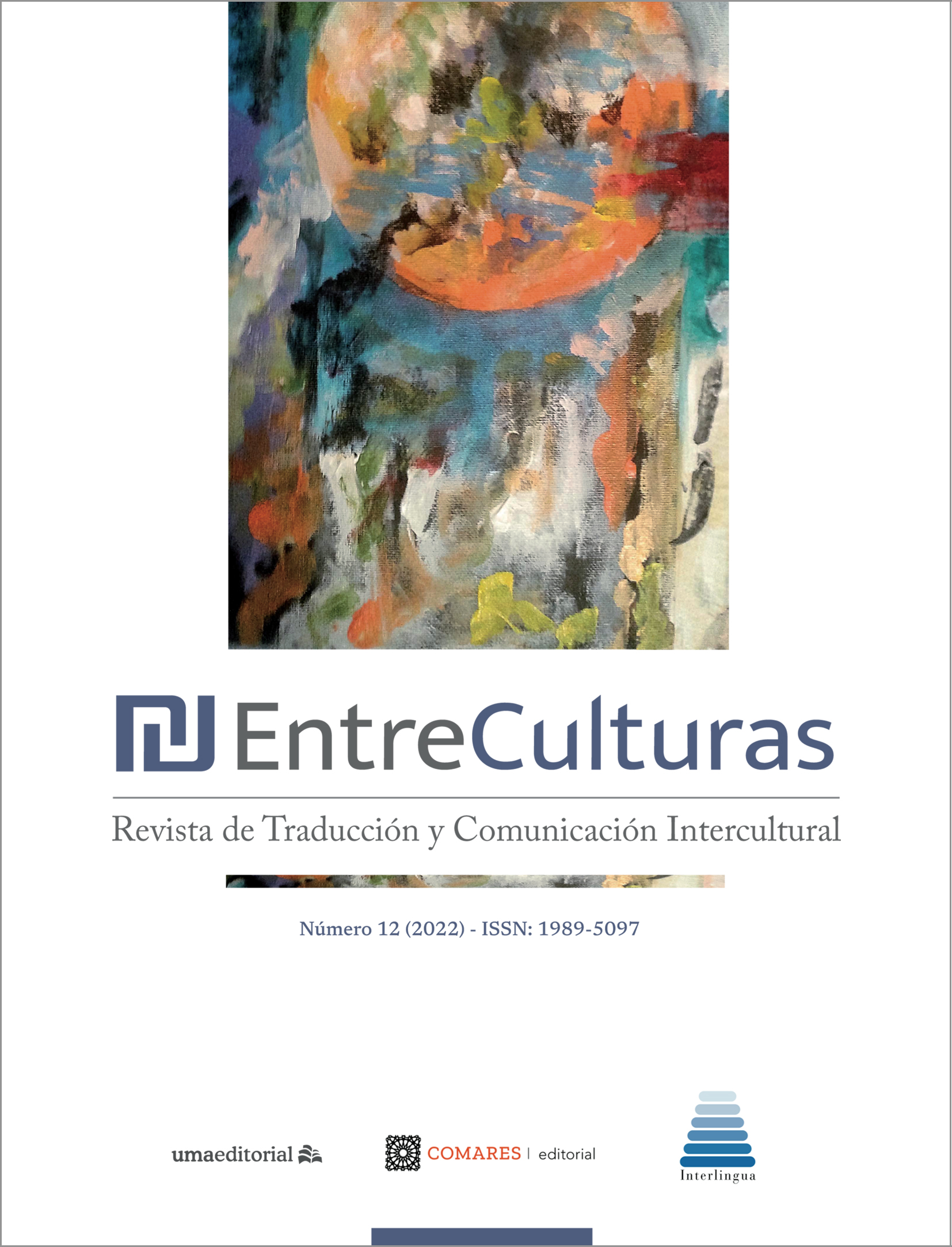Translators, Censors, and Transatlantic Publishers: The Circulation of Henry Miller’s Black Spring in Spain (1960-1980)
DOI:
https://doi.org/10.24310/Entreculturasertci.vi12.12914Keywords:
importing translations, censorship, archive, Henry Miller, Jordi ArbonèsAbstract
In this article, I analyze the import and circulation of Henry Miller’s novel Black Spring (1936) in Spain during the last two decades of Francoism (1965-1975). It is my goal to determine the role of the agents involved in producing the different versions of the novel that circulated in Spanish and Catalan: from the censors who operated within the censorship system established by the regime, to the publishers seeking profitable ends, and the translators in charge of reproducing Miller’s work in such tumultuous historical circumstances. Thus, I will make use of the archive in order to study the novel’s various circulation processes in Spain, in addition to the translations as literary products. I will take into consideration the Spanish translation by Patricio Canto (1964), Ediciones Rueda (Argentina); the Catalan translation by Arbonès (1970), Aymà (Spain); and the Castilian translation by Carlos Bauer and Julián Marcos (1978), Alfaguara-Bruguera (Spain).
Downloads
Metrics
References
Abellán, Manuel L. (1980) Censura y creación literaria en España (1939-1976). Barcelona, Península.
Alsina, V. (2005) “Jordi Arbonès i Montull: Translating in difficult times” en A. Branchadell y L. Margaret (eds.): Less Translated Languages. John Benjamins Publishing Company, 375-389.
Andrés, G. (2012) La batalla del libro en el primer franquismo: política del libro, censura y traducciones italianas. Madrid: Huerga & Fierro.
Arbonès, J. [en línea] (1967) “Carta a Henry Miller”: https://www.omnia.ie/index.php?navigation_function=2&navigation_item=%2F164%2F49299&repid=1 [consulta: 10 de junio de 2021].
Arbonès, J. (1968) [en línea] “Carta a Henry Miller”: https://www.omnia.ie/index.php?navigation_function=2&navigation_item=%2F164%2F49300&repid=1 [consulta: 10 de junio de 2021].
Arbonès, J. (1995) “La censura sobre les traduccions a l’época franquista”, Revista de Catalunya, 97, 87-96.
Avellaneda, A. (1986) Censura, autoritarismo y cultura, 1960-1983. vol. 1, Centro Editorial de América Latina.
Billiani, F. (2007) Modes of Censorship and Translation. National Contexts and Diverse Media. Manchester, UK Kinderhook, NY: St. Jerome.
Bourdieu, P. (1982) “Censure et mise en forme”, en Ce que parler veut dire. Paris: Librairie Arthème Fayard, 167-205.
Cisquella, G. Ervity, J.L. y Sorolla, J.A. (2002) La represión cultural en el franquismo: diez años de censura de libros durante la Ley de Prensa (1966-1976). Barcelona: Anagrama.
Gibbels, E. (2009) “Translators, the Tacit Censors” en Chuilleana?in, E. Cuilleana?in. C. y David, L. (eds.): Translation and Censorship: Patterns of Communication and Interference. Dublin: Four Courts Press.
Gociol, J. y Invernizzi, H. (2010) Un golpe a los libros: represión a la cultura durante la última dictadura militar. Eudeba.
Godayol, P. y Annarita T. Foreign Women Authors under Fascism and Francoism: Gender, Translation and Censorship. Cambridge Scholars Publishing, 2018.
Gómez, C. (2018) “Translation Choices as Sites of State Power: Gender and Habitus in Bestsellers in Franco’s Spain” en Baumgarten, S. y Cornellà-Detrell, J. (eds.): Translation and Global Spaces. Bristol: Multilingual Matters Limited, 109-24.
Jonhson, M. [en línea] (2020). “George Orwell, Henry Miller, and the ‘Dirty-Handkerchief Side of Life’”, Quilette, n. pag. https://quillette.com/2020/10/08/george-orwell-henry-miller-and-the-dirty-handkerchief-side-of-life/ [consulta: 10 de junio de 2021].
Lefevere, A. (1992) Translation, Rewriting & the Manipulation of Literary Fame. London: Routledge.
Miller, H. (1963) Black Spring. New York: Grove Press.
Miller, H. (1964) Primavera negra. Trad. Canto, P. Buenos Aires: Ediciones Rueda.
Miller, H. (1970) Primavera negra. Trad. Arbonès, J. Barcelona: Aymà.
Miller, H. (1978) Primavera negra. Trad. Bauer, C. y Marcos, J. Madrid: Alfaguara-Bruguera.
Monzón, S. (2020) “The Struggles of Translating Henry Miller in Franco’s Spain (1939-1975)”, Transletters. International Journal of Translation and Interpreting 4, 203-219.
Munday, J. (2013) “The Role of Archival and Manuscript Research in the Investigation of Translator Decision-Making”, Target, 25(1) 125-139.
Munday, J. (2014) “Using Primary Sources to Produce a Microhistory of Translation and Translators: Theoretical and Methodological Concerns”, The Translator, 20(1) pp. 64-80.
O’Leary, C. y Lázaro, A. (2011) Censorship across borders: the reception of English literature in twentieth-century Europe. Newcastle upon Tyne: Cambridge Scholars.
Petersen, L. (2019) “Las traducciones de Santiago Rueda Editor en la encrucijada de su tiempo”, 1611 Revista de Historia de la Traducción, 13, n. pag.
Rioja, M. (2010) “English-Spanish Translations and Censorship in Spain 1962-1969”, InTRAlinea, 12.
Rodríguez-Espinosa, M. (2002) “Identidad nacional y traducción: Entrevista con Jordi Arbonès i Montull (1929-2001),” Trans, 6, 215-224.
Ruiz Bautista, E. (2008) Tiempo de censura: la represión editorial durante el franquismo. Gijón: TREA.
Umbral, F. [en línea] (1977) “Tribuna: Diario de un snob: Henry Miller”: https://elpais.com/diario/1977/12/28/sociedad/252111610_850215.html [consulta: 10 de junio de 2021].
Venuti, L. (2018) The Translator’s Invisibility. 2nd ed. Routledge.
Downloads
Published
How to Cite
Issue
Section
License
All contents published in Entre culturas. Revista de traducción y comunicación intercultural are protected under the Creative Commons Attribution-NonCommercial-ShareAlike 4.0 International (CC BY-NC-SA 4.0) license. All about this license is available in the following link: <http://creativecommons.org/licenses/by-nc-sa/4.0>
Users can copy, use, redistribute, share and exhibit publicly as long as:
- The original source and authorship of the material are cited (Journal, Publisher and URL of the work).
- It is not used for comercial purposes.
- The existence of the license and its especifications are mentioned.
There are two sets of authors’ rights: moral and property rights. Moral rights are perpetual prerogatives, unrenounceable, not-transferable, unalienable, imprescriptible and inembargable. According to authors’ rights legislation, Entreculturas. Revista de traducción y comunicación intercultural recognizes and respects authors moral rights, as well as the ownership of property rights, which will be transferred to University of Malaga in open access. The property rights are referred to the benefits that are gained by the use or the dissemination of works. Entreculturas. Revista de traducción y comunicación intercultural is published in an open access form and it is exclusively licenced by any means for doing or authorising distribution, dissemination, reproduction, , adaptation, translation or arrangement of works.
Authors are responsable for obtaining the necessary permission to use copyrighted images.





7.png)
